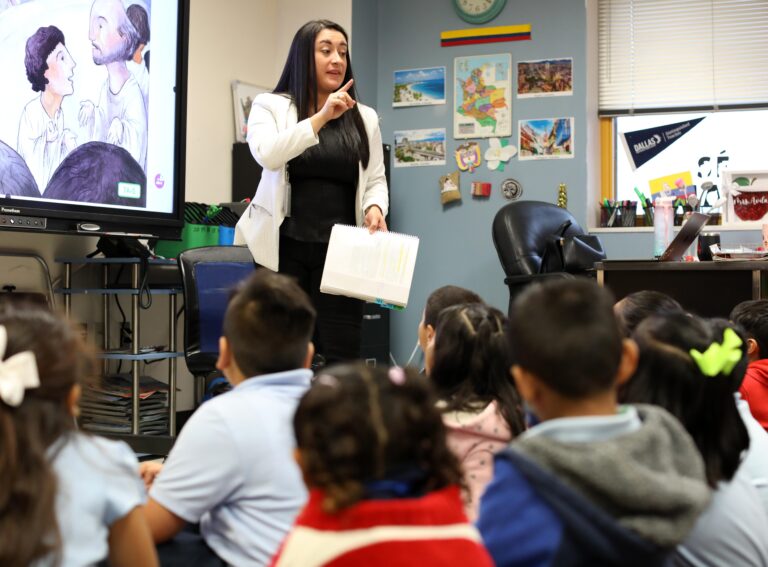Dallas ISD’s Global Educator Initiative: Transforming Classrooms Through International Talent
Addressing Teacher Shortages with a Worldwide Recruitment Strategy
Confronted with a persistent shortage of qualified teachers, the Dallas Independent School District (DISD) has adopted a pioneering approach by actively sourcing educators from across the globe. This international recruitment effort not only fills critical vacancies but also infuses classrooms with a rich array of cultural insights and innovative teaching techniques. Currently, Dallas leads all U.S. school districts in employing the highest proportion of foreign-born teachers, reflecting a strategic commitment to both educational excellence and global interconnectedness.
The district’s recruitment tactics include hosting international hiring fairs, collaborating with overseas teacher training programs, and facilitating visa processes to streamline onboarding. This influx of global educators has been linked to enhanced student participation and a more diverse curriculum. Key statistics from the 2023-2024 academic year illustrate the scope and impact of this initiative:
| Metric | Value |
|---|---|
| Number of International Teachers Hired | Over 320 |
| Countries Represented | 25 |
| Improvement in Student Reading & Math Scores | 5.8% |
| Retention Rate Among International Educators | 89% |
- Culturally responsive teaching workshops tailored to international staff.
- Community engagement programs designed to integrate teachers and their families.
- Language assistance services to support non-native English speakers.
Overcoming Barriers: Certification and Cultural Integration Challenges
Despite their valuable expertise, international educators in Dallas face a labyrinth of certification hurdles before they can fully contribute in classrooms. The process involves navigating state-specific licensing requirements, passing rigorous standardized exams, and undergoing credential evaluations that often delay employment. These obstacles can result in prolonged periods of underutilization, affecting both the teachers’ careers and the district’s staffing needs. Additionally, language proficiency demands and unfamiliar bureaucratic procedures add layers of complexity to their transition.
After certification, adapting to the local educational environment presents another set of challenges. International teachers must acclimate to different pedagogical standards, student expectations, and cultural norms, frequently with limited orientation or mentorship. This adjustment phase can influence classroom effectiveness and teacher confidence, highlighting the necessity for specialized professional development and support systems. Common difficulties encountered include:
- Recognition of foreign credentials: Lengthy and inconsistent validation processes.
- State-mandated examinations: Preparation and successful completion requirements.
- Language fluency: Meeting communication standards for teaching and collaboration.
- Cultural acclimation: Understanding local classroom dynamics and student behavior.
- Limited mentorship: Scarcity of tailored support networks for international hires.
Enhancing Student Outcomes and Cultural Competency Through Diverse Educators
The growing presence of international teachers within Dallas schools has yielded measurable benefits in both academic achievement and cultural understanding. Students exposed to a variety of teaching styles and global viewpoints demonstrate improved critical thinking and problem-solving skills. Studies indicate that such diversity correlates with higher graduation rates and better performance on standardized assessments, underscoring the positive influence of a multicultural teaching staff.
Beyond academics, these educators enrich the school community by fostering inclusivity and broadening students’ cultural horizons. Their unique backgrounds encourage empathy, reduce prejudices, and cultivate essential soft skills like intercultural communication and adaptability—traits increasingly vital in an interconnected world.
- Richer classroom discussions infused with global perspectives.
- Heightened student respect for diverse cultures and histories.
- Expanded curriculum incorporating international case studies and examples.
| Focus Area | Student Advantage | Illustrative Outcome |
|---|---|---|
| Academic Performance | Improved test results | Average 15% rise in math scores |
| Cultural Sensitivity | Increased empathy | Growth in cultural club participation |
| Global Perspective | Broadened worldview | Inclusion of international case studies in lessons |
Effective Approaches to Support and Retain International Educators
To nurture and retain its international teaching staff, Dallas schools have implemented comprehensive support systems that address both professional growth and cultural integration. Mentorship initiatives pairing new international hires with seasoned educators create a supportive network that eases the transition and fosters collaboration. Additionally, language enhancement programs and cultural competency training empower teachers to engage confidently with students and colleagues.
Retention strategies also emphasize creating a rewarding work environment through competitive compensation packages, flexible scheduling, and clear pathways for career advancement. These efforts have contributed to higher job satisfaction and lower turnover rates among international educators. The table below compares the effectiveness of Dallas’s retention strategies against national averages:
| Retention Strategy | Impact in Dallas (%) | National Average Impact (%) |
|---|---|---|
| Mentorship Programs | +25 | +15 |
| Language & Cultural Support | +30 | +20 |
| Competitive Benefits | +22 | +18 |
| Career Advancement Opportunities | +18 | +12 |
Conclusion: Dallas ISD as a Blueprint for Inclusive Educational Excellence
As Dallas continues to grow as a vibrant, multicultural metropolis, its reliance on international educators exemplifies a forward-thinking approach to overcoming teacher shortages while enriching the educational experience. This strategy not only addresses staffing gaps but also cultivates a learning environment that values diversity and global awareness. The Dallas ISD model offers valuable insights for other districts nationwide facing similar challenges, demonstrating the benefits and complexities of integrating international teaching talent into American schools.







